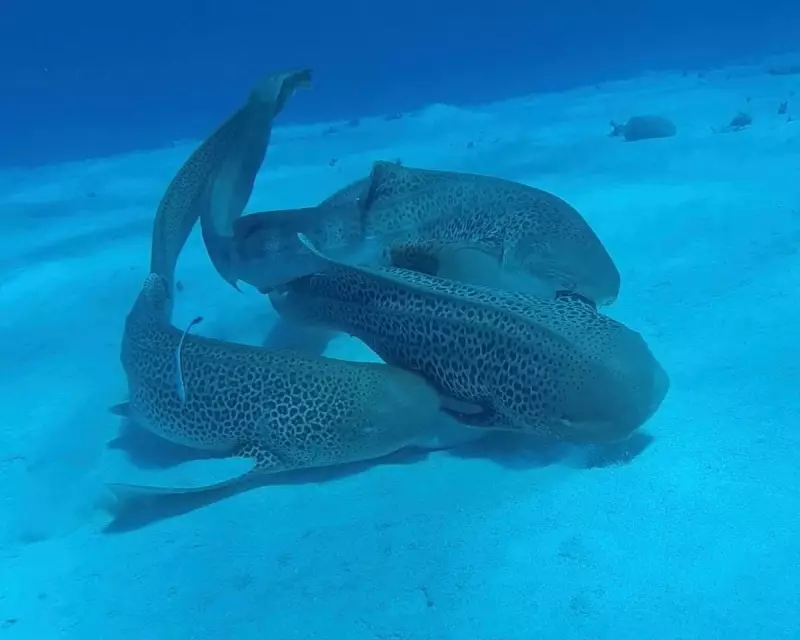
In an extraordinary breakthrough for marine science, researchers have documented a previously unseen leopard shark behaviour: a complex mating event involving three individuals. This historic footage, a world first, is revolutionising our understanding of the reproductive habits of these enigmatic creatures.
The captivating scene was captured not in the wild, but within the controlled environment of a public aquarium. This setting provided scientists with a rare, front-row seat to intimate behaviours that are nearly impossible to observe in the open ocean. The recording shows two male leopard sharks simultaneously pursuing and mating with a single female.
A Scientific Revelation
This recorded 'threesome' is far more than a mere curiosity; it represents a significant data point for biologists. Prior to this footage, the intricacies of leopard shark courtship and mating were largely shrouded in mystery. Direct observation of such events is exceptionally rare, making this video an invaluable scientific resource.
The behaviour suggests a level of social and reproductive complexity that was not previously attributed to this species. Scientists are now analysing the interactions to determine if this is a common but rarely witnessed strategy or an anomalous occurrence.
Implications for Conservation
Understanding the full spectrum of an animal's reproductive behaviour is crucial for its conservation. Detailed knowledge about mating rituals, competition, and breeding success helps experts develop more effective strategies to protect vulnerable species.
Leopard sharks, like many marine animals, face threats from habitat degradation and climate change. This new insight into their lives provides a more complete picture of their biology, which can inform future conservation efforts and policy decisions aimed at preserving marine ecosystems.
The recording stands as a powerful reminder of how much we have yet to learn about the natural world and the importance of continued research and observation, even in captive settings.





